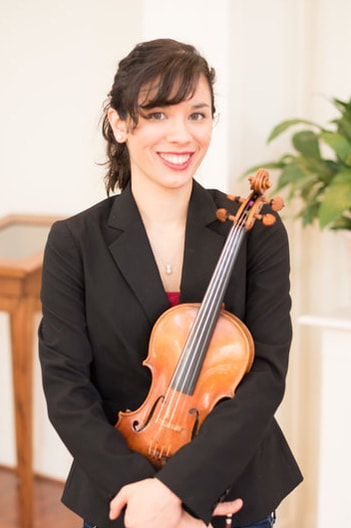I expected that this would be a fun outlet - a way to play regularly with a chamber partner, to be really geeky, and a good challenge for me to play anything that isn't strictly classical. What I didn't expect was that learning one wizard rock song would change my entire process for learning music and lead to a feeling shockingly close to creative fulfillment.
As we are both fans of Harry Potter, and I am a fan of web series and YouTube director Yulin Kuang, we decided to do a cover of the song "Horcruxes," written by wizard rocker Kirstyn Hippe, from the short film I Ship It. Wizard rock, by the way, is a genre of music that was created by Harry Potter fans - rock music with lyrics drawn from themes from the Harry Potter book series. There was no sheet music available, so I set out learning the song in a way that I've never learned a piece before: I sang.
I listened to the song over, and over again, and then I started singing along until I had it memorized. Only then did I pick up my violin. I would sing a line of text and then try to match my voice with my violin. Once I thought I had the whole song, I blasted it on my speakers and played along, listening carefully to match the singer's (actress Mary Kate Wiles) rhythms, inflections, and character.
Wade and I had a ridiculously fun and geeky recording session, and when I listened back to the take we selected for our YouTube channel, I was shocked. I almost didn't recognize my sound. The intonation was better than when I played classical repertoire. The vibrato was more integrated with the sound. The phrasing was cohesive and made sense. And - I looked like I was engaged in my performance, because I was. I spent the next few days listening to the recording over and over again.
Violin has always been a struggle for me. I could write an entire blog series on my decades-long struggle to rehabilitate technique problems and release tension. I'm used to performance being a stressful situation. I'm used to accepting that I did the best I could under the circumstances and that I will always be in the process of learning. I'm not used to recording something, listening to it, and going "I love that sound. I cannot wait to share it with the world!"
Is this what being creatively fulfilled feels like, even a little?
When I went to my practice room the next day, I took out the Wieniawski concerto I'm playing and I looked at it. I played a little, and I asked myself, "Why does this not sound as integrated as my performance of Horcruxes?" And the answer came to me - singing. So, I sang a phrase of the concerto. Then I sang it with intervals. And then I played it on my violin. It instantly sounded better. The vibrato was more appropriate to the style, the tone was integrated with the phrasing, and the intonation was more centered. I talked to a friend about my experience and she said, "You're finally making the violin your voice."
I feel like I've turned a corner in my violin playing. What started out as a fun side project turned into a transformative musical experience that's left me happier with my playing than I've ever been, and empowered to do more.
Here is the original song, as performed by Mary Kate Wiles and written by Kirstyn Hippe:

 RSS Feed
RSS Feed